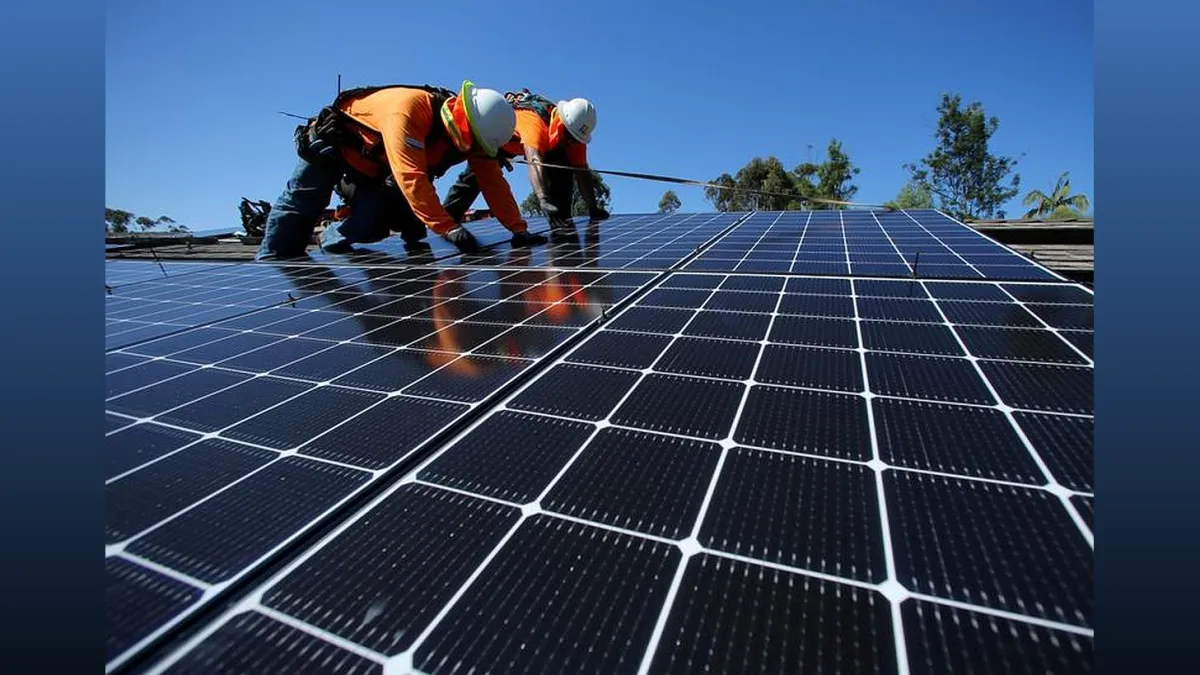Vikram Solar IPO: Your Chance to Power Up with India’s Solar Growth 🌞
A Bright Opportunity Awaits 🚀
Vikram Solar, a leading name in India’s solar module manufacturing, is launching its mainboard IPO from August 19 to August 21, 2025. With a price band of ₹315–₹332 per share and a total issue size of approximately ₹2,079.37 crore, this IPO offers investors a unique chance to tap into India’s booming solar industry. The issue includes a ₹1,500 crore fresh issue and a ₹579.37 crore offer for sale (OFS), with listing expected on August 26, 2025, on NSE and BSE. Allotment is likely on August 22, with demat credits and refunds by August 25.
The company plans to use the proceeds to fuel expansion and fund subsidiary-led projects through VSL Green Power, aligning with India’s push for renewable energy and supportive policies like the Production-Linked Incentive (PLI) scheme. 📈
Key IPO Details at a Glance 📊
| Field | Details |
|---|---|
| IPO Dates | Aug 19–21, 2025 |
| Price Band | ₹315–₹332 per share |
| Issue Size | ₹2,079.37 crore |
| Fresh Issue | ₹1,500 crore |
| Offer for Sale | ₹579.37 crore |
| Lot Size (Retail) | 45 shares (~₹14,175–₹14,940) |
| Allotment Date | Aug 22, 2025 |
| Demat Credit/Refunds | Aug 25, 2025 |
| Listing Date | Aug 26, 2025 (NSE, BSE) |
| Registrar/BRLM | MUFG Intime India; JM Financial (lead) |
IPO Breakdown: Fresh Issue vs. Offer for Sale 📉
Fresh Issue: ₹1,500 crore (72%)
OFS: ₹579.37 crore (28%)
Visual representation of Vikram Solar IPO components
Why Vikram Solar’s IPO Matters 🌍
India’s solar sector is on a growth trajectory, driven by government policies like PLI and the Approved List of Models and Manufacturers (ALMM). Vikram Solar’s IPO aligns with this momentum, channeling funds into capacity expansion and projects via its subsidiary, VSL Green Power. With a strong order book and ALMM-listed capacity, the company is well-positioned to capture demand in both utility and rooftop solar segments. 🌱
The grey market premium (GMP) has recently hovered around ₹60–₹68, suggesting a potential ~20% listing gain over the upper price band. However, GMP is speculative and can fluctuate, so it shouldn’t be your only decision factor. Always review the Red Herring Prospectus (RHP) for detailed risks, such as market volatility, input price swings, and execution challenges. 📝
Investor Insights: A Case Study 💡
Consider a retail investor from Jaipur who invested in a solar manufacturing IPO in 2023. By applying at the cut-off price, avoiding leverage, and holding through post-listing volatility, they saw gains as the company’s fundamentals—order book growth, capacity utilization, and ALMM status—improved over 12–18 months. This disciplined approach could apply to Vikram Solar, especially as it leverages fresh capital for expansion. 🧠
Actionable Tips for Investors ✅
- Review the RHP for detailed financials and risks. 📚
- Apply at the cut-off price to boost allotment chances in case of oversubscription. 🎯
- Size your investment based on risk tolerance—retail lot size is 45 shares (~₹14,175–₹14,940). 💸
- Monitor capacity expansion, order book, and margin trends post-listing. 📅
FAQs ❓
What is the Vikram Solar IPO date?
The IPO opens on August 19, 2025, and closes on August 21, 2025.
What is the price band?
The price band is ₹315–₹332 per share.
What is the issue size?
The total issue size is approximately ₹2,079.37 crore, with ₹1,500 crore as a fresh issue and ₹579.37 crore as an offer for sale.
What is the lot size for retail investors?
The minimum lot size is 45 shares, costing approximately ₹14,175–₹14,940.
What is the GMP today?
The grey market premium recently ranged between ₹60–₹68, but it’s unofficial and subject to change. Use it cautiously.
When is the allotment and listing?
Allotment is expected on August 22, 2025, with demat credits/refunds by August 25, and listing on August 26, 2025.
How is the IPO structured?
It’s a book-built issue with up to 50% for QIBs, 35% for retail, and 15% for NIIs.
What are the proceeds used for?
Funds will support expansion and VSL Green Power projects (Phase I & II).
What are the key risks?
Risks include market volatility, execution challenges, policy changes, and PV supply chain price fluctuations. Read the RHP for details.
How should retail investors apply?
Apply at the cut-off price within the 45-share lot framework to improve allotment chances, and size your investment based on risk tolerance.
